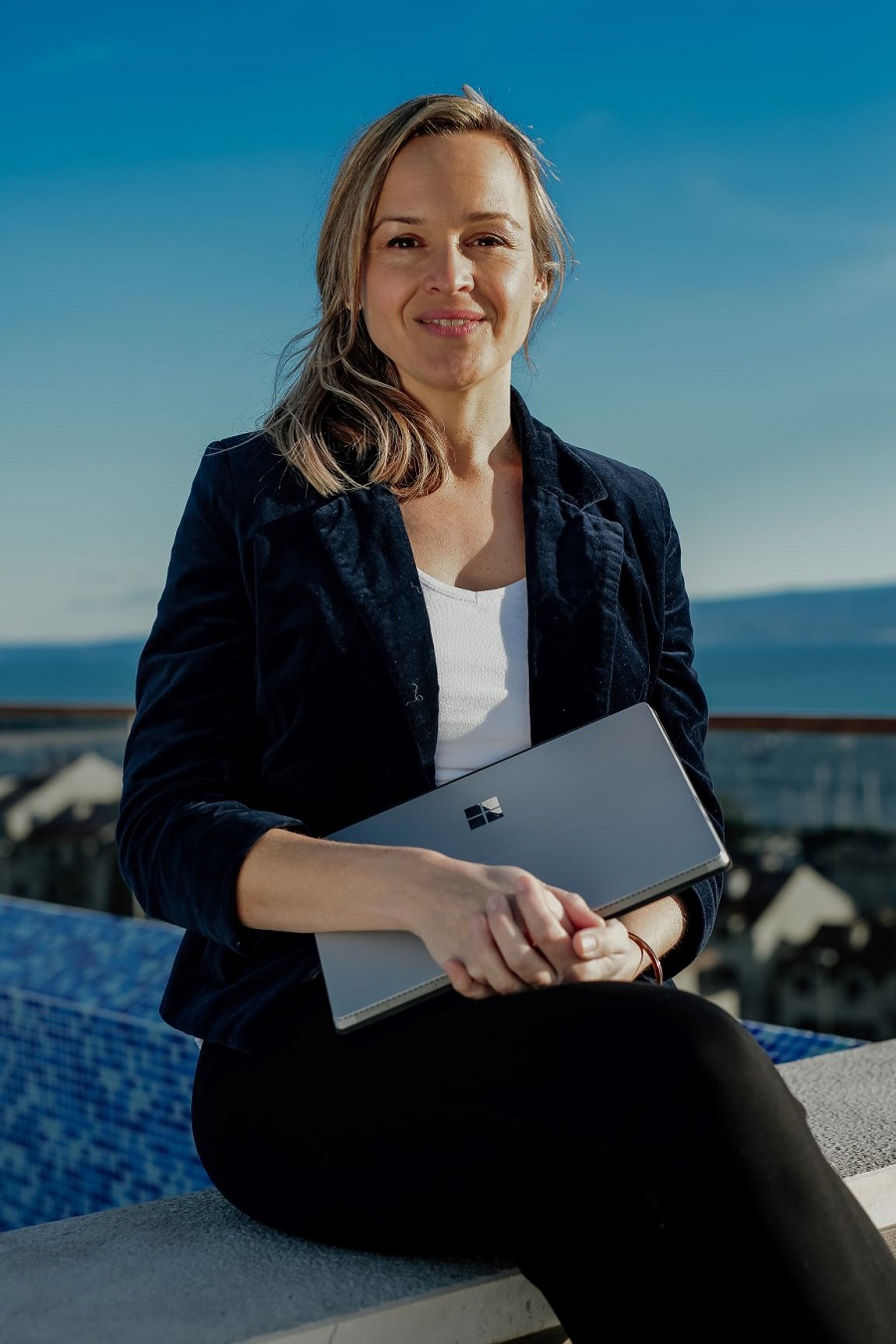Save the Date: Zagreb Digital Nomad Week Announced for June 21-27
April 29, 2021 - The Zagreb Tourist Board has announced a 'Save the Date' for Zagreb Digital Nomad Week 2021 for June 21-27.
The digital nomad buzz is getting louder in Croatia. The arrival of the Croatian digital nomad permit earlier this year, enabling non-EU/EEA citizens to work remotely in Croatia for 12 months, has opened up a new dimension to Croatia as a tourist destination. Where once the beach was the main attraction, today lifestyle - and longer-term living - is attracting a new breed of tourist, the digital nomad.
With three unexploited tourism treasures of safety, authentic experiences and lifestyle, the remote work opportunity seems to be a fantastic opportunity for Croatia as it looks to reset its tourism strategy in the wake of pandemic realities.
The Zagreb Tourist Board is now putting the digital nomad opportunity in the spotlight in the Croatian capital.
Zagreb Digital Nomad Week will take place from June 21-27, offering an innovative programme exploring the current topics of interest and burning issues for the digital nomad lifestyle in Croatia and beyond.
A combination of workshops, presentations, social and tourism activities focusing on the key themes will provide a comprehensive and stimulating week for anyone engaged in the digital nomad lifestyle.
Full details of the programme will be officially announced in early May, but if you are planning your summer holidays and the digital nomad life is part of the mix, save the dates of June 21-27 for Zagreb.
Full details will be published on TCN next week. In the meantime, follow the TCN dedicated digital nomads section for the latest news.
Saltwater Nomads' Tanja Polegubic on Dubrovnik Digital Nomad-in-Residence Programme
March 18, 2021 - There are less than 2 weeks to go until applications for the Dubrovnik Digital Nomad-in-Residence (DN-I-R) competition closes. An in-depth interview with competition creator, Tanja Polegubic of Saltwater Nomads.
The pandemic has been a strange time for all of us, but it has also brought new directions and opportunities. I would never have expected to have been involved in the organisation of Croatia's first-ever digital nomad conference, Dubrovnik for Digital Nomads.
2020 was a great year for the digital nomad sector in Croatia, culminating of course in the introduction of the digital nomad permit on January 1. Now nomads meeting the criteria are able to live for one year in Croatia and work remotely. TCN teamed up with one of the early pioneers in these fairly uncharted waters, Saltwater Nomads. Dubrovnik was the first destination to see the value in what we were offering, we have been working with them ever since.
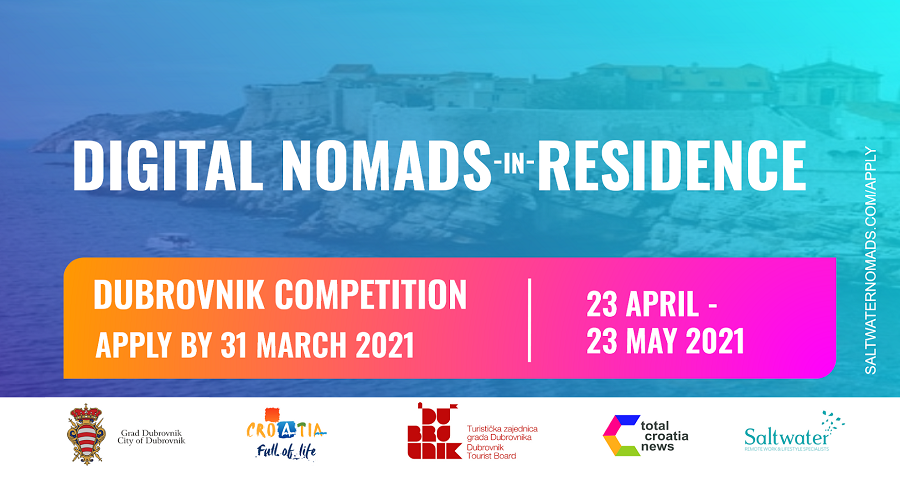
Saltwater CEO, Tanja Polegubic, designed and delivered the October conference, and she is also behind the Dubrovnik Digital Nomad-in-Residence competition, a unique concept which has attracted considerable international attention. And some VERY strong early applications.
There has also been some confusion about the competition and what we are trying to achieve, and I thought that the best way to explain more would be to get young Tanja to explain in more depth.
(Photo by Damira Kalajzic)
It is being billed as the world's first digital nomad-in-residence competition, in partnership with the city and tourist board of Dubrovnik. Can you briefly explain what that means exactly, and what you are trying to achieve?
The notion of a scholar- or artist-in-residence is a globally recognised concept. These residencies are models of collaboration; they bring diversity to an institution, and foster an environment for research, knowledge sharing - and in this case, the goal will be implementation.
The selected DN-I-Rs will participate in design thinking workshops and present their findings on shaping a Digital Nomad Friendly city.
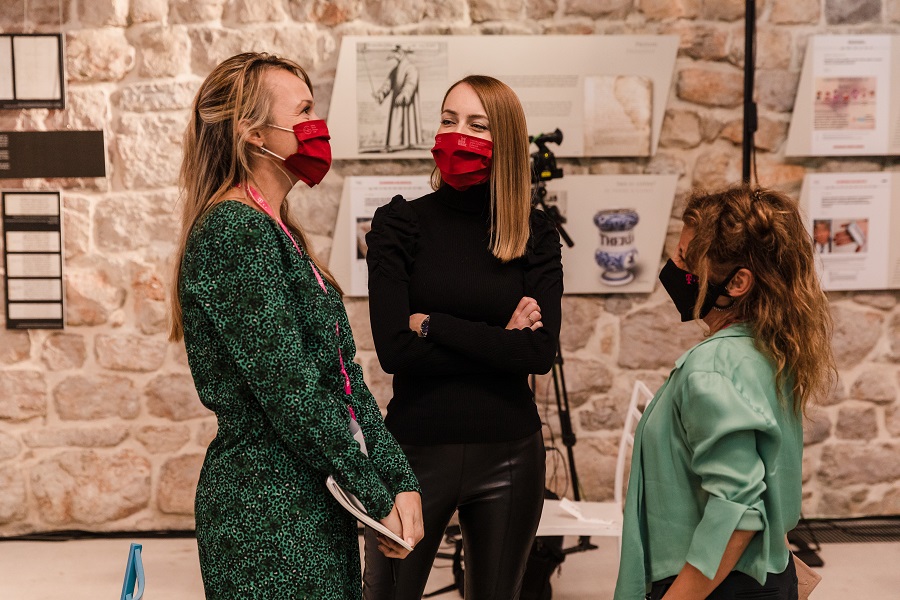
The first goal in working with Dubrovnik was to build awareness about the city and what it can offer for digital nomads, as it was not previously known for this - but was certainly infamous! This is in motion, with much international media coverage about Croatia’s most famous city. Like most places, it is undergoing a transformation - everyone knows what Dubrovnik looked like before. Digital nomads are only one aspect of this. We are using a co-creation model to look at ways digital nomads fit this new direction.
You are offering 10 lucky winners the chance to spend 4 weeks as guests of Dubrovnikworking with the city to develop their strategy to better serve digital nomads. Who is eligible to apply, and what kind of applicants are you looking for ideally?
Anyone who can be a digital nomad for a month can apply. This might be first-timers, who are perhaps working from home right now - or a seasoned digital nomad travelling the world.
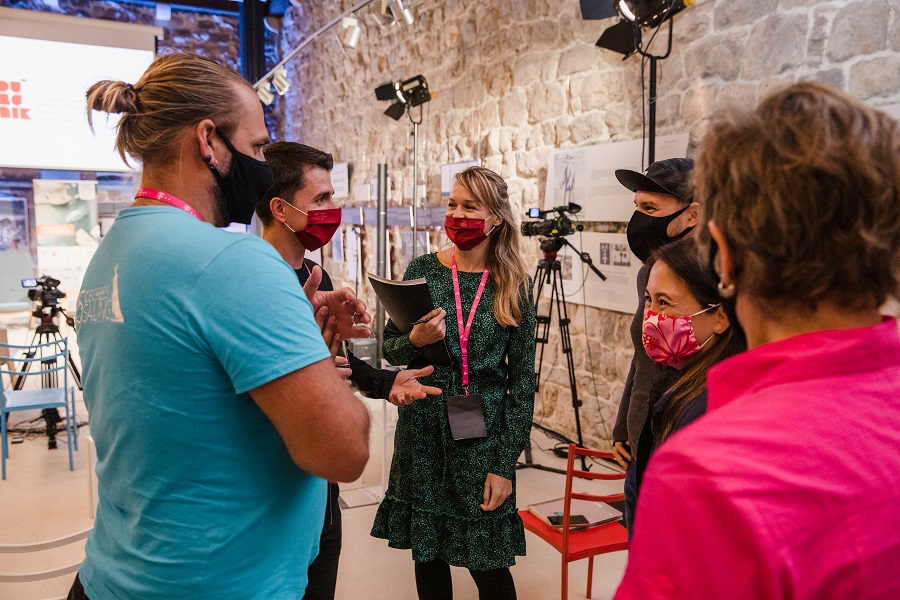
We are looking for applicants who will bring value to the program. This isn’t a free ride - even though you’ll go on some amazing local area tours, free! We want to see evidence you will commit and can make a contribution. We’re looking for diversity in age and professions. We also need to know what skills you will bring, and we have answers such as “community building, playing the ukulele, history knowledge” so it is really about what an individual brings and looking at how that will fit in a group. We don’t expect people to have experience doing this before,or1 million followers
If you are asking for a hot tip - I can only say, ensure it reflects your personality - we want to see the real you. Also, do some research on Dubrovnik to inform the reason WHY you are applying.
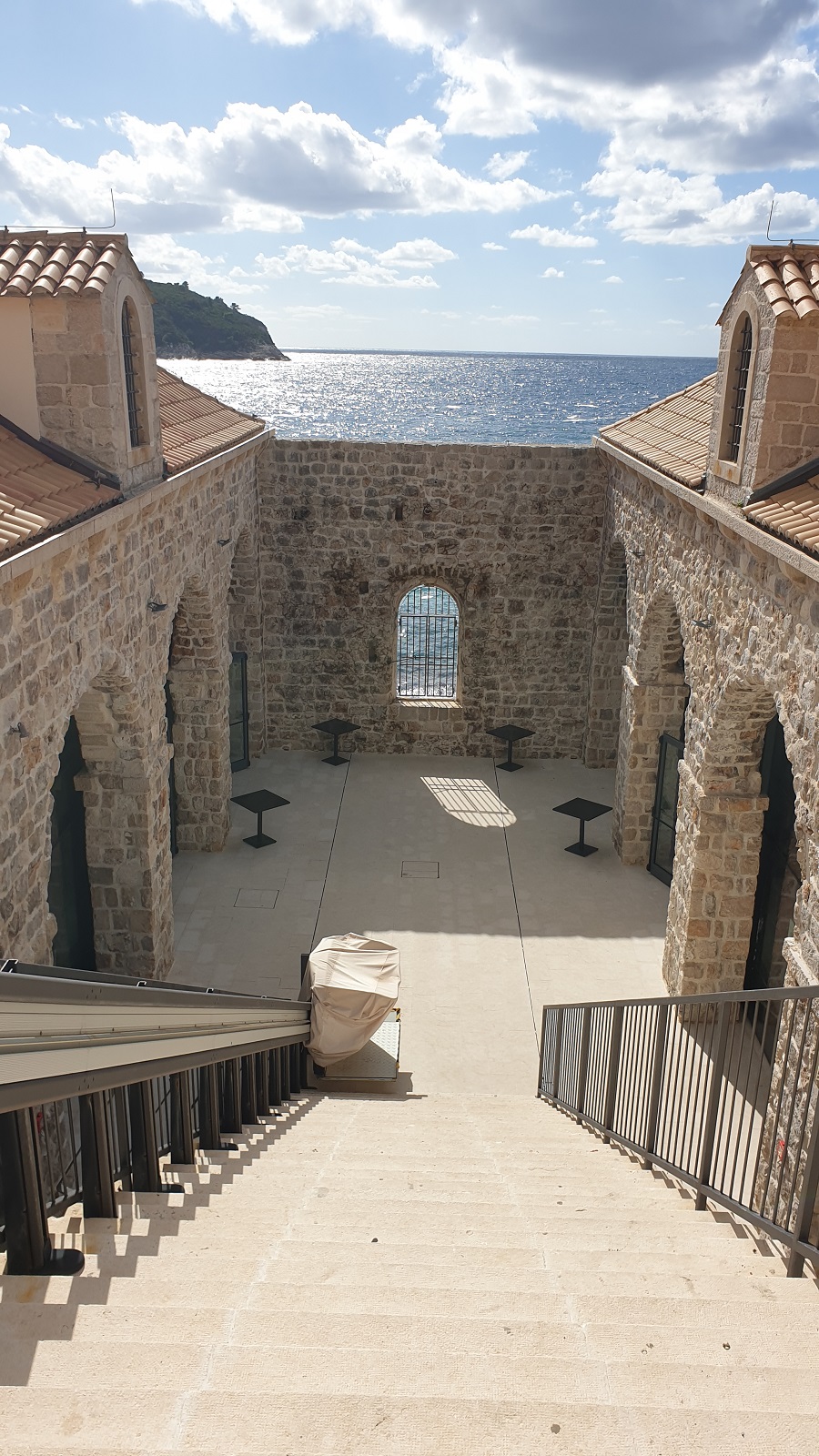
(The Lazareti, the original quarantine premises for the Dubrovnik Republic, which is where the first digital nomad conference in Croatia was held)
The application period is already open and runs until March 31. How has the response been so far?
The applications we’ve received so far are diverse and strong. As it’s the first time it has been done, this will be the benchmark. There are also COVID19 factors to consider. Not many people are sure of their ability to travel right now. On that note - COVID19 safety is our high priority and we are operating within the prescribed guidelines and in constant consultation with the City about this.
We are confident a high-quality group will emerge.
There will be other opportunities to be involved, so anyone who applies will get this information, first.
Your company, Saltwater Nomads, is providing both the concept and the delivery of the Dubrovnik Nomads-in-Residence programme. Why Dubrovnik?
First Movers
Dubrovnik was the first to recognise and follow through on the idea to welcome digital nomads to an external audience.
Sustainability
Dubrovnik was, according to some reports, the second most overcrowded city in the world. I watched on during the war. I visited for the first time in 2001 as a volunteer at Trsteno Arboretum. I considered it as a destination when I first began researching opening a cowork in 2015. Its history is … epic. It is Croatia’s best-known city, so when it prospers, this can only benefit every other city in Croatia - nomads travel. So, from bringing wider benefits to Croatia, to delivering a more sustainable approach - the why is clear to me.
Action-oriented
Getting things done in Dalmatia can be difficult, drawn out and tiring. There’s a lot of skills atrophy. Complaints, with no action. A brain drain. Anyone with a more open-minded and longterm vision, in this case a city - is where energies should go right now. Local council and institutional support is key.
Dubrovnik has demonstrated it “gets it”, and I forgot for a while what that looked like. I am also pleased to say, other cities are taking progressive steps, and were perhaps limited due to many factors - so I am confident Dubrovnik is just the start.
Keep an eye out for new projects in Zagreb, Bačvice beach Split and an island.
You are known as one of the pioneers of the remote work initiative in Croatia, opening your first co-working space back in 2017, and there has been a lot of buzz regarding the Croatian digital nomad 'visa', or permit. How has the scene changed in Croatia since you started?
I started researching opening a coworking space here in 2015. My father became ill, and ultimately passed away, so I did not come until 2017. Prior to Covid-19, it was a tough run on the coast. You’re too expensive in Summer, and there’s not much to offer in Winter, so no one knows about you and goes to Bali instead. Also, no one knew what I was doing - but my first “walk-in” the first month I opened was from Google. I wasn’t even ready yet, but I took this as a sign I was onto something. In that time, I branched out to do a range of project work, and met a lot of people and discovered the kind of person I would want to do business with - having had no experience in business - and really learning a lot. I am still learning.
The pandemic (and as a result, working from home) has changed everything. Croatia’s new digital nomad permit has turned it into turbo mode. There are more online services due to COVID19. These are progressive steps to making Croatia ideal for digital nomads.
The thing I most expect to change, is a rise in people with Croatian origins also considering Croatia as their office. I already see it, in fact.
What are the biggest challenges for Croatia and its tourism providers in order that they fully take advantage of this opportunity? I am struck, for example, by high levels of enthusiasm to offer 'digital nomad tourism' without necessarily a clear understanding of what that entails.
This is a long-term journey arising out of the pandemic. Digital nomads are just a part of it. While it is great to see enthusiasm, a more informed approach and diversification would be wise. Can digital nomads be one form of moving toward this? I believe so.
I am reading and talking to some of the more visionary thinkers to offer something other than tourism. It is my belief that a digital nomad audience can deliver capacity-building opportunities regular tourism cannot, for example, by knowledge sharing and showing “you can work from anywhere” helps the younger generation see they have options. Also, Croatia is a place which can be a base for different sectors. Again, to touch on Croatians outside Croatia - if the rest of the world is coming here to work, why can’t you - but in this case, actually invest or run a business, which a non-EU national on a digital nomad permit currently cannot.
The biggest challenge, currently, is education. Providers need to know why and how a digital nomad is different to a regular tourist.
For example, this includes longer stays, a desire for more immersion in community and feeling at home.
Longer stays are the best example - it is hard for someone who has previously made 8,000 euro in 1 month to now offer the same apartment for 800 euro. Thus, landlords must decide if they will offer monthly bookings vs nightly. This is currently, and I expect will continue to be, Croatia’s greatest challenge; it impacts a decision on where to stay and will be a deterrent if prices and convenience are not available year-round. Some incentives for more properties to offer this is one way which can help.
Also, knowing what to offer.
A lot of people are working from home - the kitchen table is not always suitable. Nor is slow or unreliable internet. People are travelling with or adopting pets. They are self-catering more. They require everyday household items - such as more coathangers. It really can be that simple. You need to consider utilities pricing, and then things like whether you are registering a nomad as a tourist, or will have a lease - as the taxes differ. There’s a lot of new information and adjustments to be made. Some are quick fixes, some need more investment.
These are areas which can be addressed, and I am confident Croatia offers everything - Lifestyle being number 1.
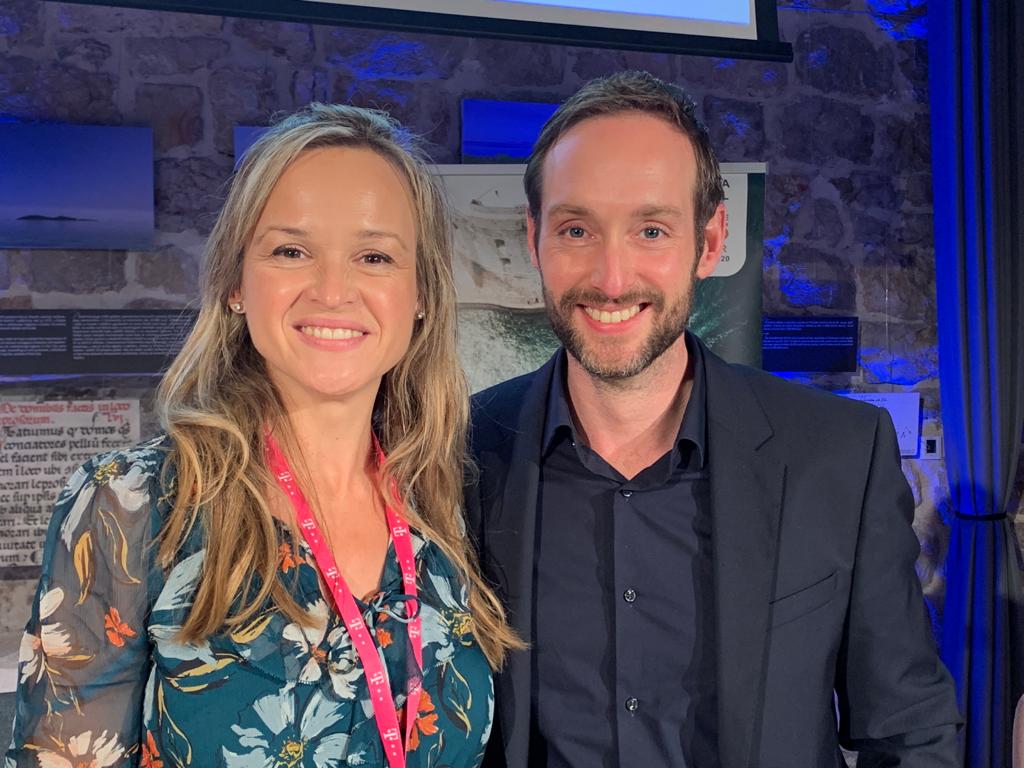
(With Digital Nomad Association co-founder, Jan de Jong)
You are also a co-founder of the Digital Nomad Association in Croatia. Tell us a little about that.
Working in a tough town with a tough business to make viable has meant I’ve encountered almost every problem imaginable for digital nomads. I enter the DNA bringing these insights, as I’ve directly been impacted by the same issues a digital nomad, or business serving digital nomads, may face.
Being part of DNA Croatia with Jan and Karmela is one of the greatest things to come out of last year. I learn every day from the different skills my colleagues have, and we each bring a different perspective.
The association is about strength in numbers. Our current focus is heavily administrative, and the next focus is to drive membership, and collectively work toward meeting our five goals which are: representation (eg. to government bodies), community building, education, information and certification (eg. ‘digital nomad friendly’ properties). I also believe we were the first in the world with such an association. We really saw the need to get things right from the start of the permit being launched. How? We bring a range of collective expertise.
There’s entrepreneurial, community work and NGO experience in our founding team. Every day, we hear from and factor in how people in Croatia or digital nomads want to be served. Our aim is to bring all this together.
Each one of us is passionate, has a strong network - and is actively contributing to make Croatia realise its potential. Even in the face of occasional criticism - but from what I see, the ones who criticise are quick to give an opinion, but haven’t done anything to change things.
And finally, what are you hoping the end results will be of the programme, and how will you measure its success?
The expectations are high. Success is a happy City and Tourist Board, number one. Next are the participants. We’re promising a once-in-a-lifetime experience, so it’s a big task.
We’re confident the workshops will be engaging and involve members of the community in a co-creation model. For example, the tourist council is a knowledgeable base of experts to engage, through to tour guides, historians, you name it. The structure of the program will determine who is identified - the first task is to see how the digital nomads experience the City themselves. It then calls for the involvement of relevant local stakeholders. This is built into the co-creation model. Some locals have already reached out, which is wonderful.
Enjoyment
The tour program made my jaw drop (I don’t know how anyone will get any of their regular work done with all there is to do)! The participants are there to enjoy being in Dubrovnik for a month as special guests of the City and Tourist board. It has to be a positive experience, which they will promote, with authenticity.
Sustainability
It is a thrown-around term. Still, our efforts are intended for there to be ongoing benefits beyond the four weeks of the DN-I-R program. Will our findings and recommendations be able to be implemented? Will they benefit incoming digital nomads and locals? Sustainability equals success.
Local buy-in
The City and Tourist Board supports this and recognises its value. During the program, which uses a co-creation model, we continue to look to the City and Tourist Board for guidance on who and how to engage with the community they serve. When a number of new products and services emerge - as a result of this program and other efforts, then it’s a win/win.
Beyond Dubrovnik’s walls
Success is other locations - in the region or beyond, adopting a similar or modified approach - i.e. making the effort to do something to suit a remote working audience. It doesn’t have to be so intensive, but the roadmap is expected to have some universal ‘tweaks’, but of course there will be location-specific things to implement.
Numbers
The moonshot is to be profiled as a best-practice example for cities adopting new strategies to cater to remote workers and demonstrate Croatia has some of the best places to live by more digital nomads coming. We are slow when you compare us to other established Mediterranean countries - so we are making up for it. For a tourist-reliant city to make such a move, this has already drawn the attention of urban planning publications - so already, the world is watching. Success is when they start coming to live and work here.
There is still time to apply, with applications accepted until March 31. Learn more about the competition rules and apply via the official Saltwater entry form.
For more news and features about digital nomads in Croatia, follow the dedicated TCN section.


